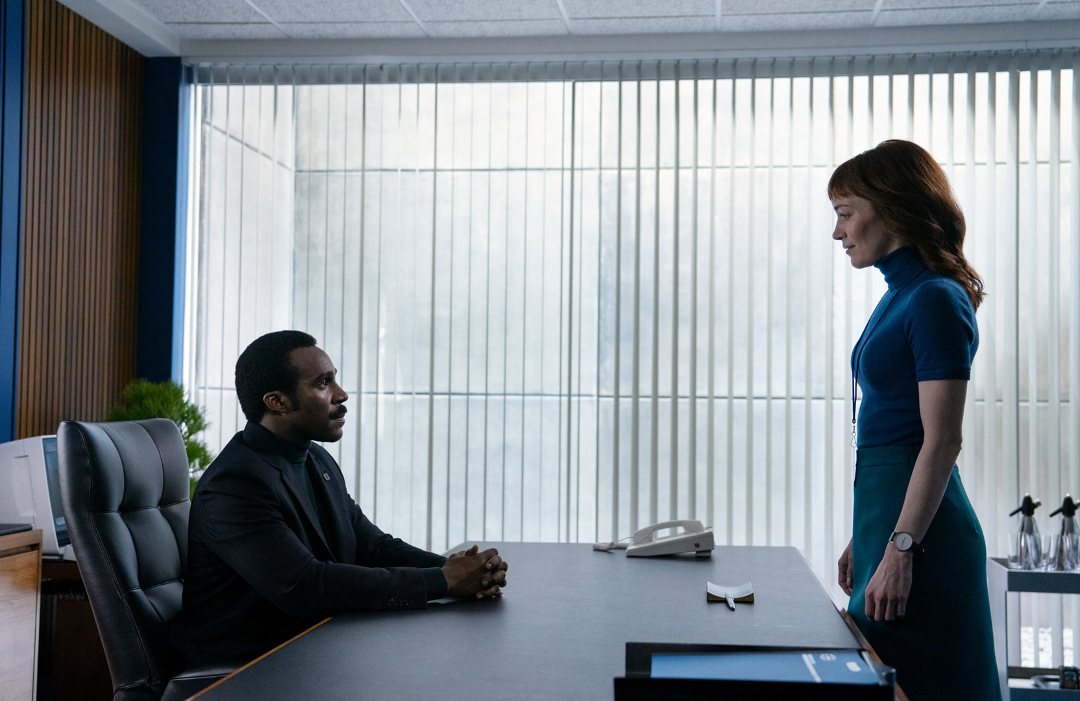Severance is probably the best show on television. And I only say “probably” because I can’t possibly watch everything on television for the sake of comparison.
Is there already an online backlash beginning to develop among would-be hipsters? Of course. It must follow as the night the day, as Shakespeare put it, the backlash following anything good becoming popular. Ignore it. The are stronger and weaker episodes, as with every series, but overall the level of excellence is astonishing.
Now nearly through its second season on Apple TV+, with the final episode available on March 21, Severance continues to dazzle. The show’s elective “severance” procedure involves an operation on the brain that cleaves the “work” consciousness from that of the individual’s personal life, so that neither part knows anything further about the other. In theory, this allows people to enjoy their lives unaware of the drudgery of their working hours, while their work selves are mentally clear to focus on their jobs. In reality, the workers are prison labor in unusually sleek surroundings, psychologically tortured to keep them in line.
Created by Dan Erickson, whose own suffering in corporate jobs inspired the series, and produced and mostly directed by Ben Stiller, this sci-fi combo of paranoid thriller and dark office comedy is so well executed that the bleakness of its subject matter is offset by the vigor of its style and construction. Film noir from the mid-century achieved the same effect, consistently presenting a view of modern American hell with such verve, it became a perverse pleasure to stare into such a chillingly pertinent representation of the abyss.
The series’ popularity suddenly exploded after the launch of Season 2, with record-breaking numbers signing up to watch it — so that it’s now the most-viewed show in the history of Apple TV+, beating even the beloved comedy Ted Lasso.
The bleakness of Severance’s subject matter…
Auteur: Eileen Jones

